
A Farewell to Smoking
Japan is quitting smoking rapidly: for less than two years, 5% of smokers of the "Land of the Rising Sun" gave up smoking cigarettes. UNIAN visited Tokyo to find out why Japanese smokers can get rid of the bad habit smoothly.
The largest tobacco corporation claimed about its intention to stop cigarette production, an instrument of highly harmful habit that gives billions profits at the expense of thousands lives, in near future.
Smoke as the source of income Philip Morris International (PMI) is intended to replace by nicotine-containing vapor, specifically, with aerosol – what, according to studies' results, has a potential to be less harmful for nicotine depended peoples' health. Electronic nicotine delivery systems without tobacco's combustion, carcinogenic tar and combustion product's inhaling is a new parley of the tobacco company and, due to global tendencies, future flagman product and main hope for industry in conditions when smoking is going out of style and goes under rough legislative restrictions.
UNIAN already wrote about launch of PMI's innovation – IQOS product in Ukraine. Device is heating tobacco to initiate nicotine's release, that is inhaled by consumer without inhaling combustion products (in particular benzene, acrolein, formaldehyde and 1,3-butadiene that are known to be connected with development of oncological diseases and other smoking-related problems, comparing to cigarette), appeared on our market in the beginning of 2016. About the device, its alternatives and scientific base, that supports a potential to reduce risk for smoker's health while substituted cigarettes with alternative nicotine-delivery systems on average for 90-95%, you can read here and here (both articles are in Russian only).
Not to follow the trodden path, we will just remind that for the last few years anti-tobacco agenda had changed, now scientists, doctors and public activists' fights with tobacco smoking, other than with nicotine itself. Rapid development of e-cigarette market and other alternative devices (they are generally called " alternative nicotine delivery systems"), that can help smokers to refuse harmful (for themselves and for others) habit to inhale smoke of a smoldering tobacco and paper, encouraged lots of tobacco-fighters to re-think the whole situation and change their minds and efforts. World's top-scientists admitted that if person is not ready to reject nicotine completely and quit smoking, it is necessary to convince him to change the way of nicotine consumption – to reduce the harm, caused to smoker's health.
Globally, cigarette's consumption does not decrease significantly (people in well-developed countries quits and doesn't start smoking massively, but in developing countries of Africa, in India and China cigarette consumption still grows), rough anti-tobacco laws and global trend on Healthy Lifestyle, bad habit's quitting cause clear strategic problems for tobacco business. Moreover, last year China joined a fight against tobacco, while being the top world's cigarette consumer.
Japan is calling smokers to a smoke break
PMI's decision to parley on cigarettes' alternatives was proved by phenomenal success of IQOS product in Japan. Citizens of a country, were anti-tobacco legislation is the softest one among developed countries, were gadgets and technical innovations are treated so well, are literally lined-up for electronic alternative to combustible cigarette.
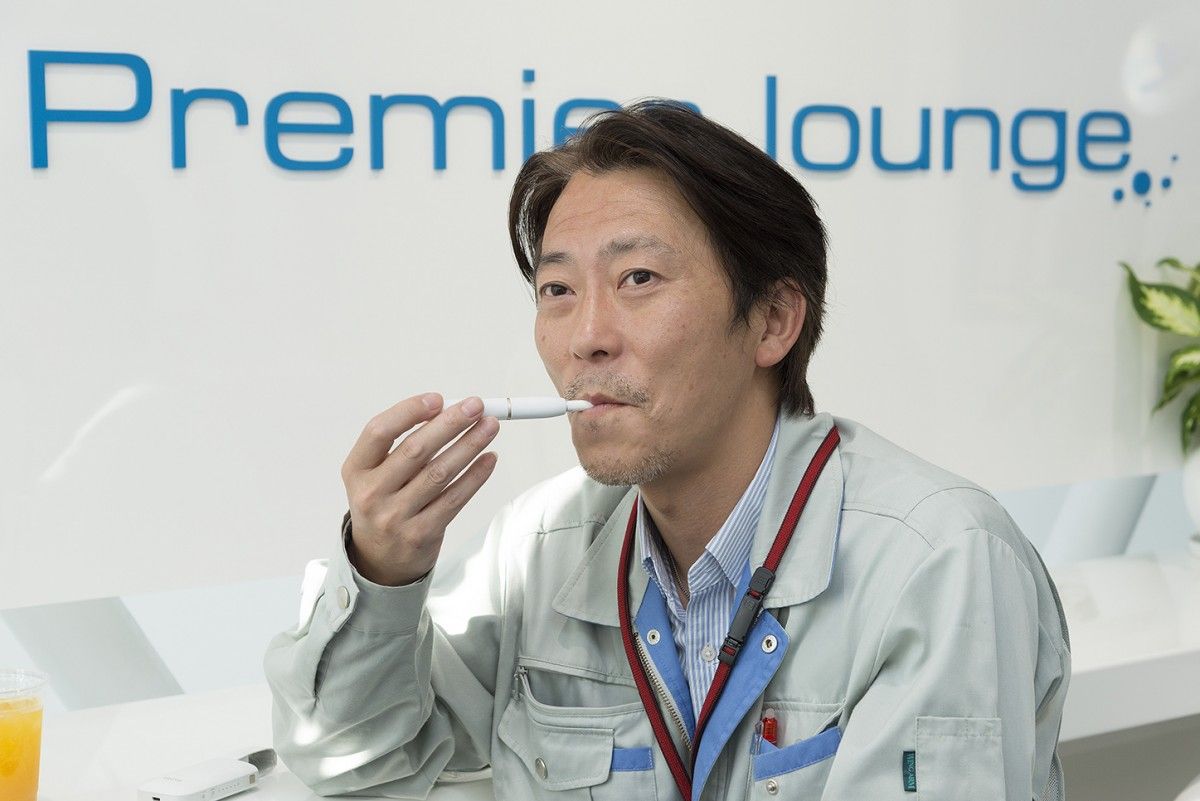
At their times, as in other countries, first generation e-cigarettes could not satisfy most of Japanese "experienced" smokers (and later Japanese government even decided to limit sales of nicotine-containing liquids in the country). Few years ago, scientists explained this phenomenon: nicotine in the vapor, inhaled from most e-cigarettes, assimilates differently than in tobacco smoke due to different size of nicotine droplets. While smoking, nicotine comes directly from lungs to blood flow and reaches pleasure centers in brain rapidly, on instant, aerosol from most of e-cigarettes sedimentates in larynx with slow diffusion to blood flow and reaches brain in half an hour or even longer. Properly, that was an issue to disturb switching smokers from harmful cigarettes to, so called, "reduced risk products" and a large task for specialists to work on.
In the "Land of the Rising Sun" nowadays are more than 20 million smokers and more than a million of them switched from regular cigarettes to IQOS in a last year and a half. Heatsticks for IQOS (tobacco for heating, packed in way that looks a lot like shortened filter cigarettes) sales in Japan today reaches rates of 50 packs a second, and every second one device for heating is bought. Key role in such an amazing rates played joined affords of marketologists, politicians (especially local authorities), doctors and media.
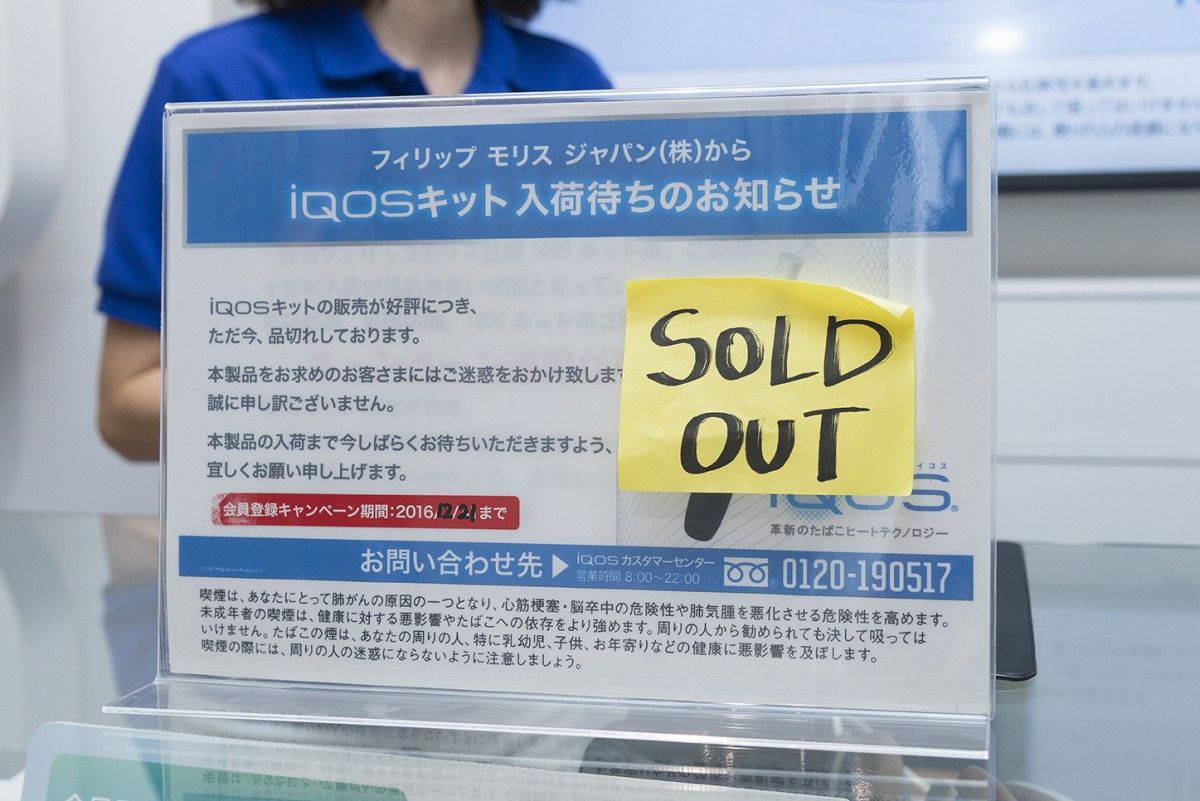
"We made more than 10 thousand meetings with government officials, companies' management and cigarette sellers explaining core technology, scientific base that lay a foundation for the admission of evidence about risk reduction for smoker's health when switched to tobacco heating system," – tells about the work done MD of Philip Morris Japan, Paul Riley. "And we were lucky, because people in Japan were ready to listen to arguments, to study numbers and to believe to scientists, which admitted our researches".

As a result, one after another prefectures in Japan began to remove restrictions on the IQOS use in public places that became as an additional incentive for smokers to give up conventional cigarettes. Here it is necessary to make a specification, in Japan, unlike most countries, it is forbidden to smoke outdoors – there are specially designated places for cigarette users, smoking rooms. One of the reasons for this practice, in addition to public health benefits, is to keep the cleanliness – as you know, while used, cigarettes produce ash, which clogs the sidewalks, and the Japanese are the nation that is literally obsessed with cleanliness.
In this sense, the tobacco heating system allowed to kill two birds with one stone: not causing harm to others, they also do not produce ash. As a result, a number of cities (in some cases, districts) have ceased to oblige police to prescribe penalties for those who consume IQOS on the streets and in parks.
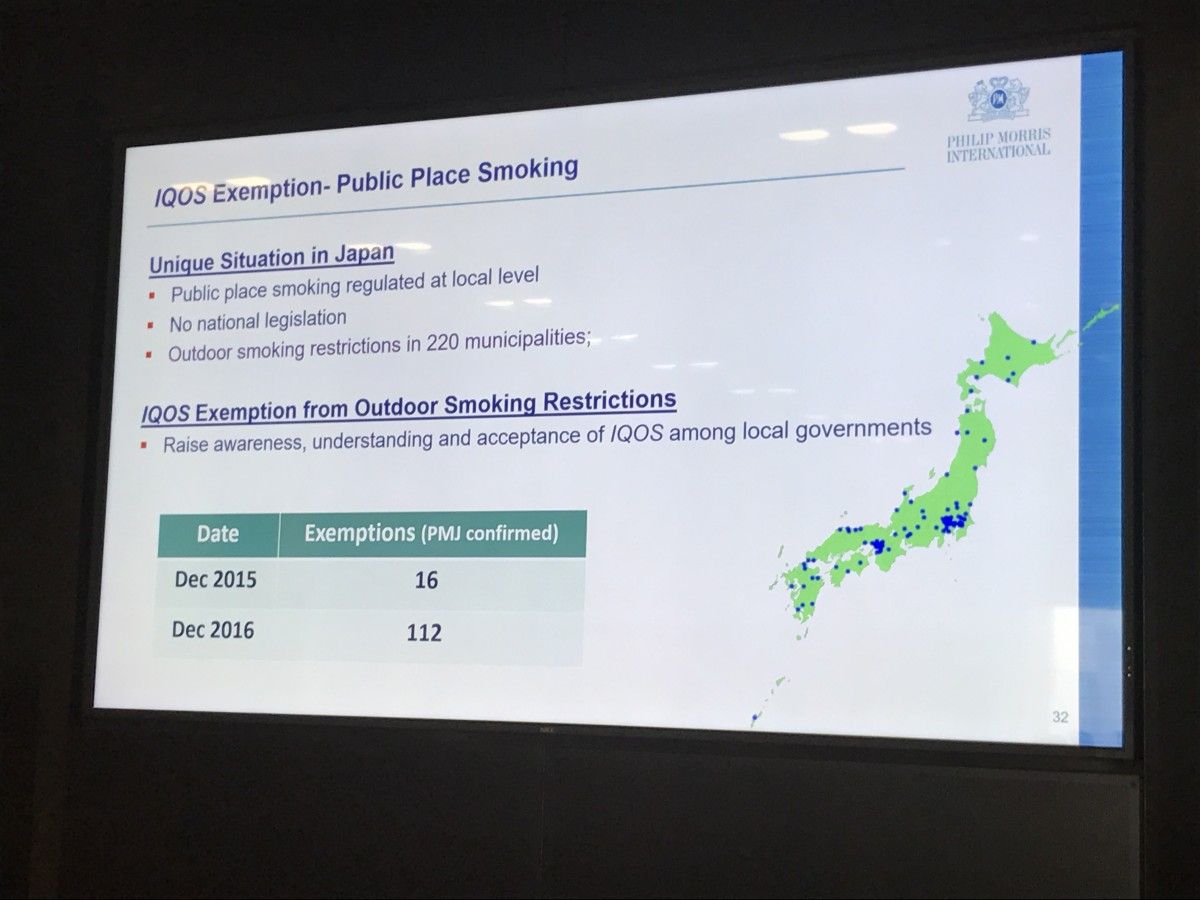
An important element of alternative nicotine delivering systems' promotion in Japan is a special corporate ethics. If company's (or specific department's) head switched from cigarettes to IQOS, his example was followed by most of his smoking subordinates. As a result, the entire enterprise massively abandoned cigarette smoking and thousands of workers purchased electronic devices.
"Employers realize how beneficial it is – if a person does not spend every hour going on a smoke break, time to get to the smoking room and return to the workplace, and began to encourage smokers to switch from cigarettes to IQOS", says Paul Riley. In addition, heatsticks became more convenient and accessible for purchase – they are spread throughout Japan through conventional cigarette vending machines, along with ordinary cigarettes, thus are placed at the top of the commodity layout, apart from combustible "relatives".
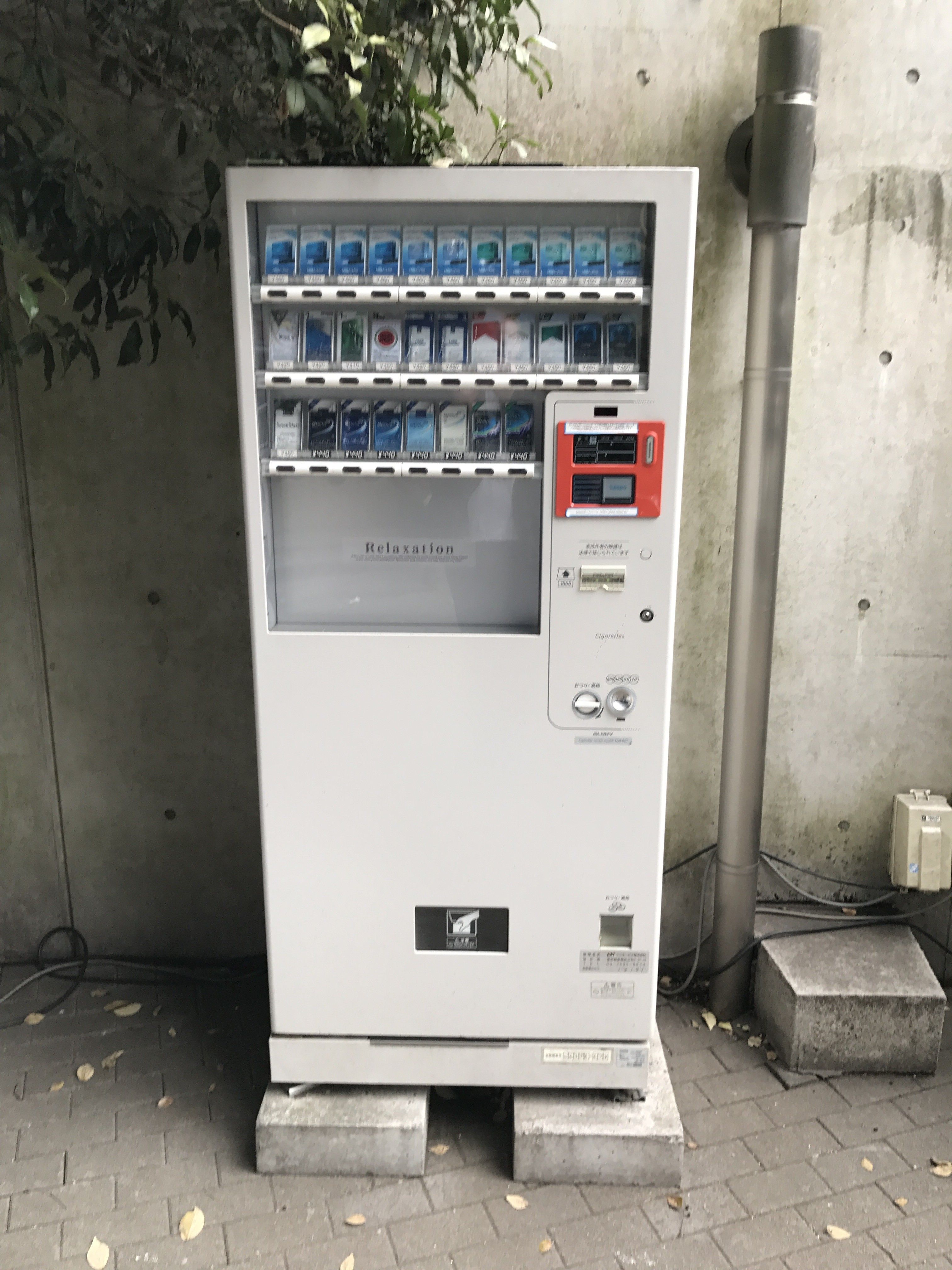

As a result, IQOS-stores in Japan turned into a kind of Apple Store during the launch of the brand new version of iPhone. There are always huge lines of those willing to purchase a device for tobacco heating and its accessories, because in most cases it is problematic just to come and buy the device. You have to survive the line for the voucher, and then, after some time (sometimes even the next day) you have to come back and pick your IQOS after standing another one line.
Money from vapor
The small business also got involved in the process of exploration of the new product. Actually, while the vast majority of Japanese restaurants allows smoking cigarettes, catering outlets have "non-smoking hours" – for example, for periods of lunches and breakfasts, or allowing to smoke strictly within 16-18 o'clock – not to embarrass and not to harm the health of non-smokers in the daytime. "But IQOS does not produce smoke and ash, and does not incommode non-smoking customers, so we allowed its usage to our visitors all day long, unlike cigarettes that we allow to smoke to our customers only after 17 o'clock," says the assistant manager of Miyamas' Bar & Dine café, Seyo Dayki. "This approach was a success, the number of consumers started increasing on dinner-time. In the end, we even decided to completely ban smoking on the first floor of the restaurant, so that visitors who do not smoke or use IQOS, could have dinner or even enjoy their stay all day long without smoking neighbors."
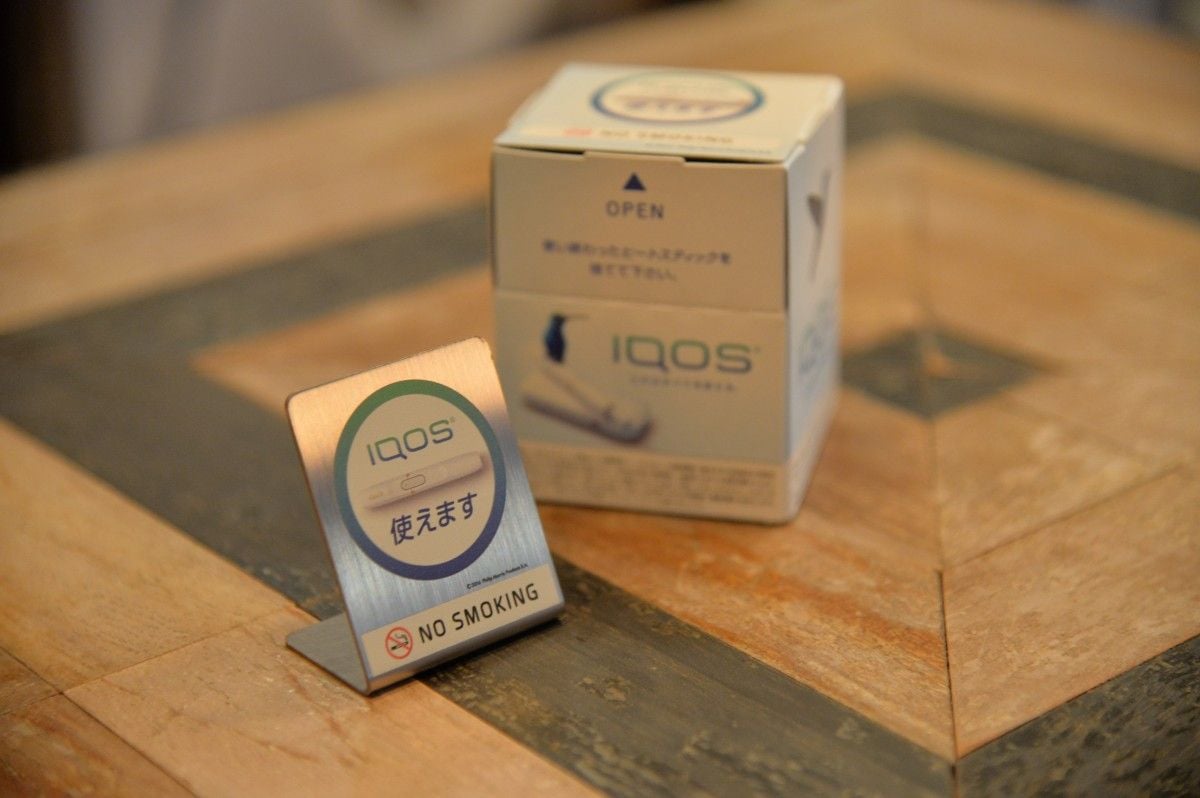
Dayki says that, as a result, employees who were smoking cigarettes also converted to IQOS – it allowed the staff to get rid of the "bad smell of smokers." In addition, waiters' experience in the use of tobacco heating systems allows them to explain the principles of its work to customers who see for the first time a product with reduced risk.

"Smokers were coming for lunch, when you cannot use combustible cigarettes, and saw people enjoying IQOS. They wanted to try. As a result, we began to give to those who were interested the device for rent and the heat-sticks," says Seyo Dayki about the "side" business that appeared out of thin air.
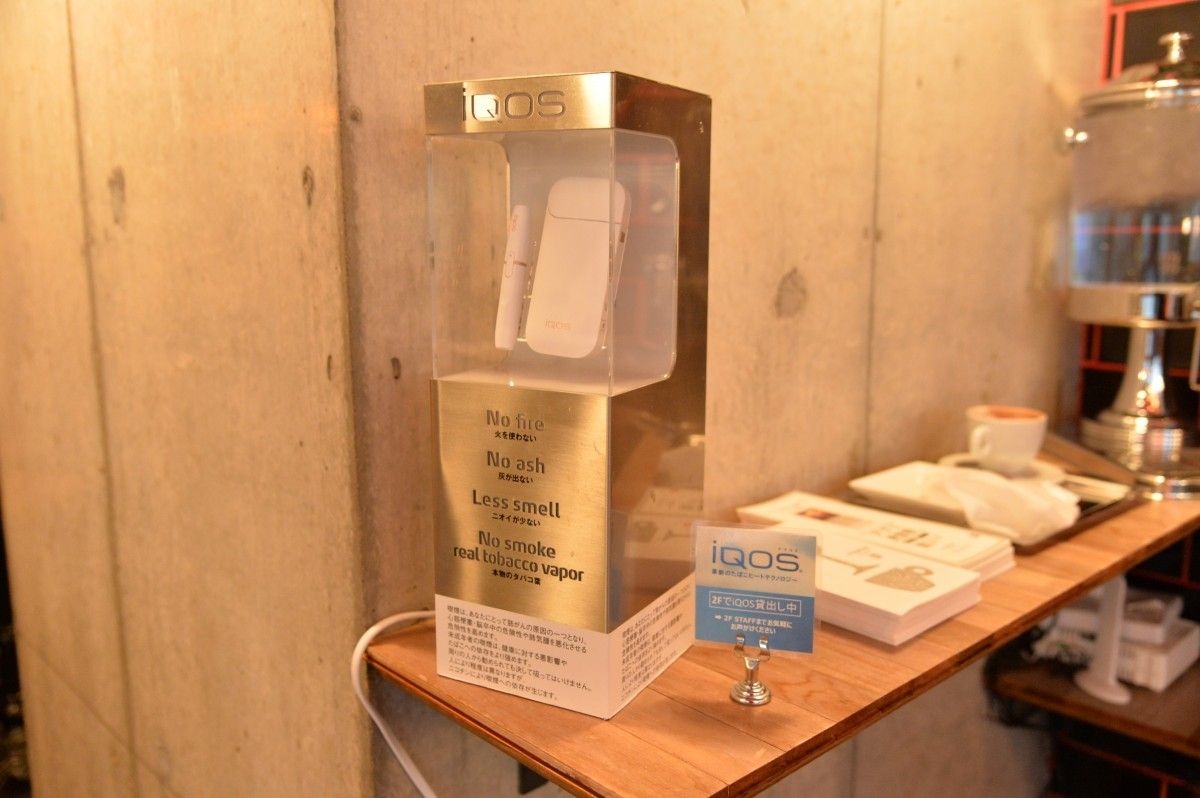
Now in Japan exists a dedicated websites with city maps showing "IQOS-friendly" (welcoming the use of tobacco heating systems) cafes, restaurants, nightclubs and shops – it also helps the business. Enterprising Japanese went even further – using the "common factor" among users of alternative products, they launched corresponding...dating sites.
The general trend was also joined by taxi drivers – in some taxis, passengers were allowed to use IQOS while traveling (here it should be noted that some taxi services in Japan allows smoking regular cigarettes, but the percentage of those has been steadily declining in recent years).
In general, marketing of the product was well done, localizing it to the descendants of the Samurai: Japanese IQOS stores are selling entire layouts of cases for the devices with exotic colors, venerated in Japanese youth subcultures; In addition, in a country where cosplay and comic books are popular, an entire industry grew up on decoration of devices with drawings, inscriptions and thematic labels (with images of heroes of popular comics and cartoons).
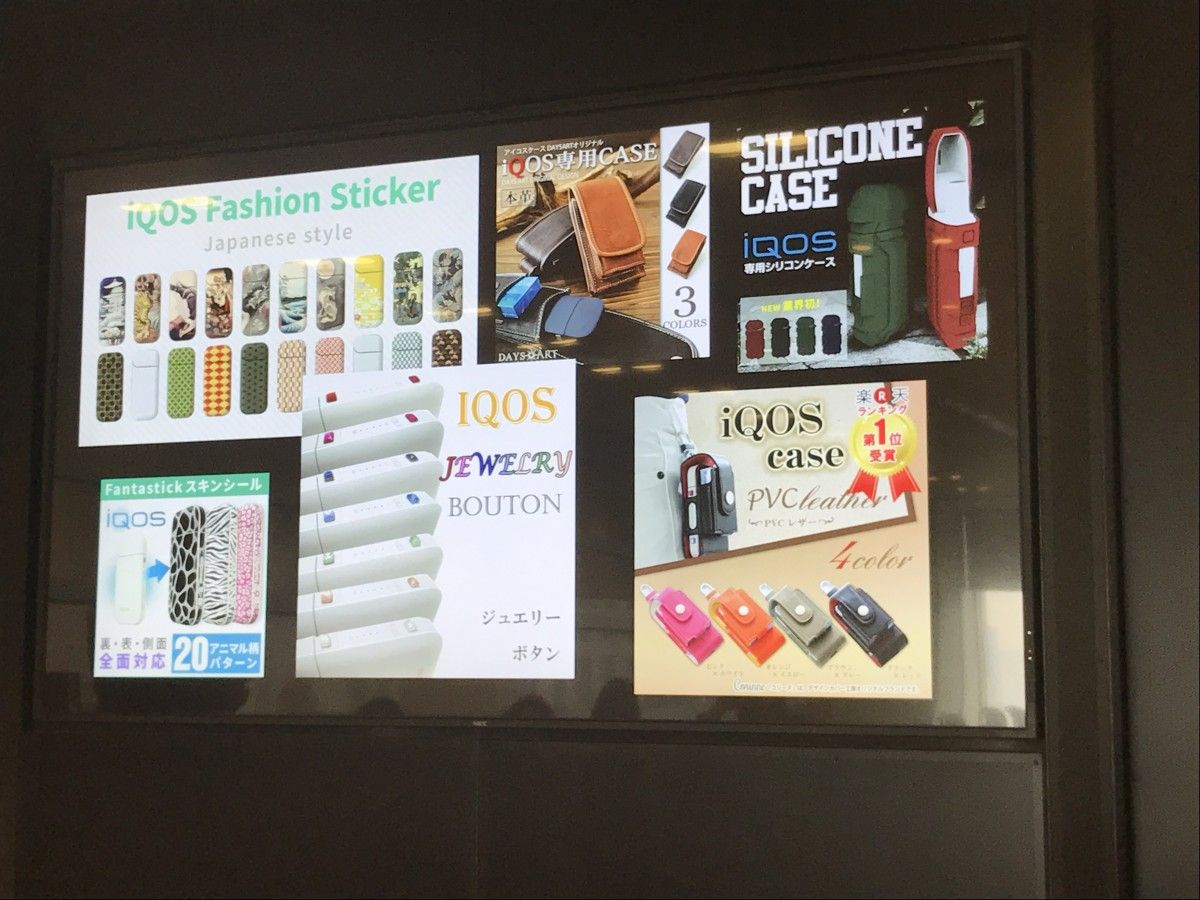
It is obvious that such a systematic approach was proved to be extremely effective in the fight against smoking – that's why in a relatively short period, more than 5% of smokers gave up cigarettes switching to tobacco heating systems.
Ukraine is not a Japanese case
To sum up, one may define success principles of Japanese campaign against smoking in its current form as follows: 1) offer those smokers who cannot or doesn't want to quit smoking an alternative which is potentially less harmful; 2) provide producers with an opportunity to talk about this alternative (including via traditional advertising – unlike Ukraine, in Japan tobacco products' advertising is completely banned only on television, thus, producers of reduced risk products can talk about their products to a wide audience); 3) offer additional incentives for those who switched to reduced risk products (usage in places where smoking is banned).
Unfortunately, Ukraine in this issue is far from Japan. At the time of Yanukovych, Parliament adopted an anti-tobacco law, which put the electronic cigarette on a par with conventional and prohibited, among other things, the use of e-cigarettes in public places (except for open terraces of restaurants) – e.g. parks, stadiums, etc. However, the logic of such a rigid anti-tobacco legislation in the times of "Family" and the Party of Regions were explained simply – in one day by changing one of the most liberal tobacco laws in Europe to one of the toughest one, Yanukovych and his deputies, who continued smoking in the corridors of the Verkhovna Rada, have tried to demonstrate to the civilized world their Europeanness (which, on the eve of Euro 2012, amid the persecution of the opposition in Ukraine, were reasonable questioned).
Yanukovych, however, fled to Russia, but his legacy remains: on the sidelines of the Ukrainian parliament of the current convocation, several deputies developed (perhaps not without incentives from the tobacco corporations) projects to restrict or even ban the sale of electronic cigarettes and other alternative nicotine delivery systems.
However, Ukraine has already established its own production of electronic cigarettes and nicotine liquids, vaping (use of e-cigarettes) is becoming more and more popular – especially among the young ex-smokers, and the local office of Philip Morris takes some effort, trying to partially replicate in Ukraine Japanese experience on IQOS promotion. In the capital already more than two dozen restaurants and bars allow visitors to use tobacco heating system at its premises (in particular, restaurants of Dmitry Borisov, The Bar and The Burger). By the end of the year, this list will include another dozen of places.

"The number of adult smokers who have switched to IQOS, is growing every week, for example, in comparison with May (when we opened IQOS Space) sales of heatsticks for tobacco heating system increased by 740% in December. At this point in Kiev we already sold more than 6,000 devices," says Artem Krivtsov, general manager of Philip Morris Sales and Distribution (subsidiary of Philip Morris Ukraine, responsible for sales of products in Ukraine). "In 2017, we will start selling tobacco heating systems by PMI in 4 cities – Lviv, Dnipro, Kharkiv and Odesa."
Forced silence
The key problem is that neither electronic cigarette nor IQOS or other alternative nicotine delivery systems in most countries are allowed to be advertised – and, hence, producers cannot tell public that smokers may potentially significantly reduce the damage to the health, in case where there is no will to quit smoking.
This is a global problem, faced by professionals struggling with smoking, promoting less harmful ways of getting nicotine by smokers: with the exception of Japan, politicians prefer total ban and restrictions, making an act of smoking more and more expensive and uncomfortable. However, the method of "stick" is effective in a relatively small percentage of cases: most smokers do not quit smoking even when cigarettes take significant part of a personal budget, and one can smoke only in specially designated areas. And, although the use of electronic systems of delivering nicotine, not only can reduce the risk to the smoker, but also eliminates the discomfort caused by tobacco smoke to others, most countries do not allow doctors to openly agitate smokers to replace smoking with vaping. And still, there is no ways to legally advertise alternative to cigarettes, to talk about its benefits to a large audience of smokers. In this sense, this year decision of the British doctors, who now officially recommend to their smoking patients to switch to e-cigarettes and other means of substitution of burning tobacco, was quite a revolutionary one.
"We know that electronic cigarettes are less harmful for human health than conventional ones, we observe patients' state improvement after switching from regular cigarettes to e-cigarettes. We are sure that it is vital for smokers to have an access to less harmful products what is resulting in mortality rates decrease eventually, but due to legislative restrictions, connected with nicotine itself, we cannot talk about it to mass audience, we cannot promote or advertise smoking alternatives to smokers," says Professor Gerry Stimpson, Head of public organization Knowledge•Action•Change, Public Health expert from Great Britain on a professional conference this summer.
By the way, such approach was nicely characterized by Aaron Biebert, journalist and documentarist, author of "Billion Lives" movie, were plot of pharmaceutical companies and political lobbyists against e-cigarettes was disclosed: "It is too cynical when regulation bodies ban or limit distribution and sales of e-cigarettes under umbrella of lack of studies. It is well known that regular cigarettes are harmful, can lead to premature deaths, but at the same time information about safer electronic alternatives is dissembled. Creating restrictions for such alternatives while you can easily buy regular cigarettes with proved health effects everywhere is the same as telling 'people had better keep dying.'"
This antinomy is well described by Greek cardiologist Konstantinos Farsalinos, who visited Kiev this autumn: "We are told that selling electronic cigarettes should be forbidden, even if they are less harmful for health, because we don't know how reduced the risk is. Better people continue smoking conventional cigarettes that we know are harmful and can lead to human death and do not try alternatives. This is ridiculous."
…And it is hard to doubt.
UNIAN recalls that switching to electronic cigarettes and other nicotine-containing devices is not the alternative for quitting smoking at all. Nicotine cause dependence and can damage your health.
Mykhailo Gannytskyi, Tokyo-Kyoto

